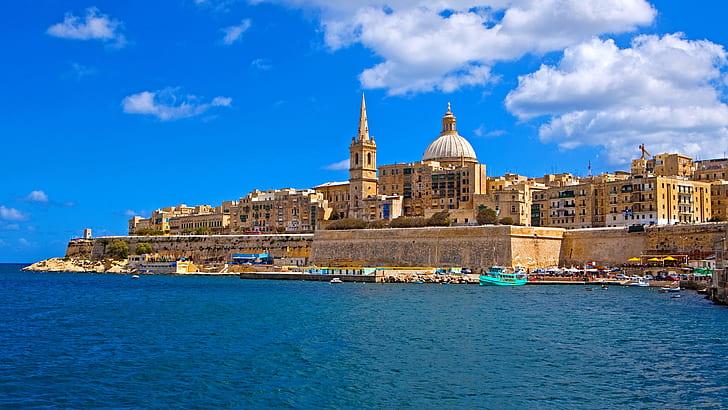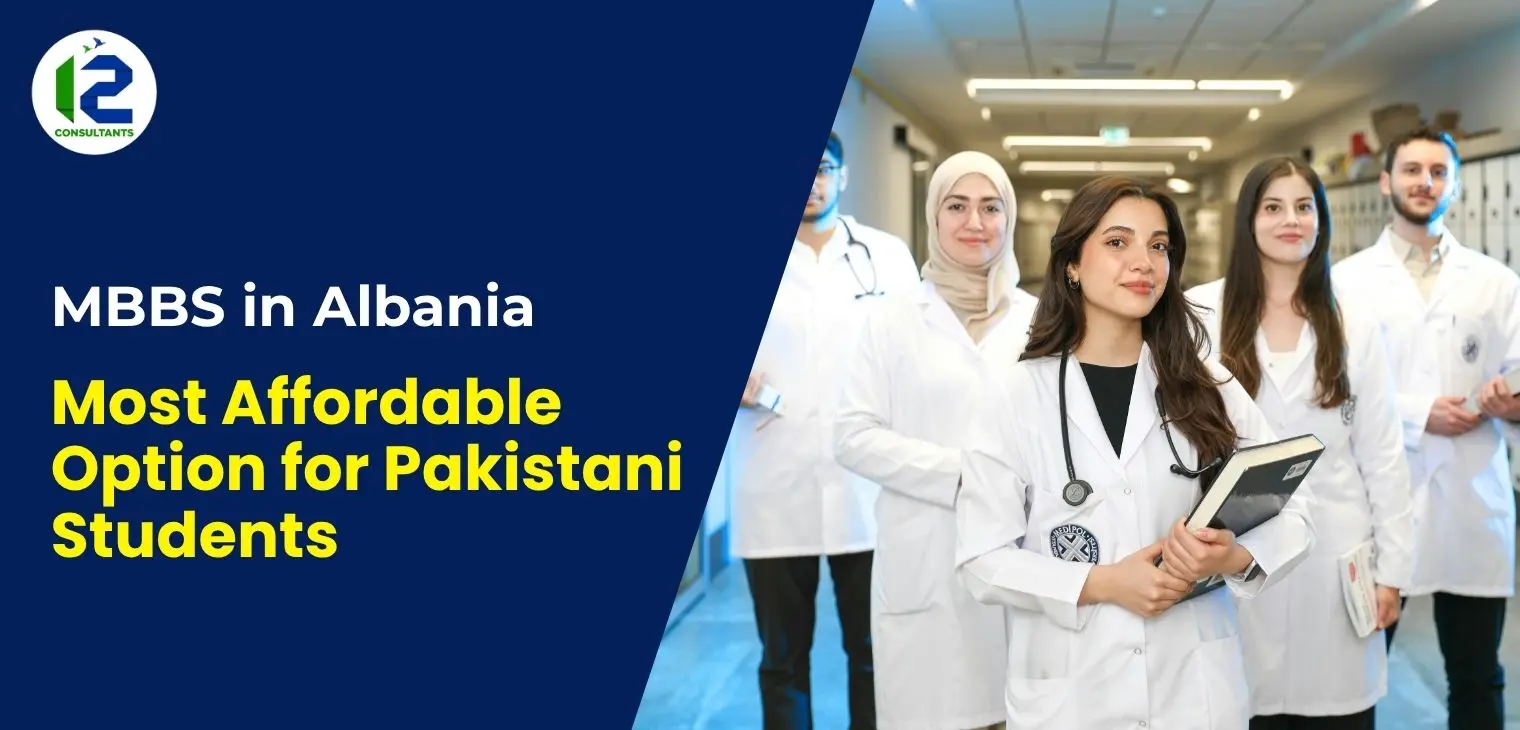
Study MBBS in Malta 2025-26 | Tuition Fee | Visa Guide
Malta, nestled in the heart of the Mediterranean, offers a unique and enriching environment for medical education. With its reputable medical schools and picturesque landscapes, Malta has become an increasingly attractive destination for aspiring medical professionals. To navigate the admission process smoothly, understanding the detailed criteria and application procedures is essential. This guide provides a comprehensive overview of the MBBS admission criteria for studying in Malta.
| Capital City | Valletta |
| Currency | Euro |
| Official Language In Malta | English |
| Scholarships In Malta | Available |
| Deadline For Application | All Year |
| Average Tuition Fee | 2500 € / Semester |
| Average Tuition In Medicine | 4000 € / Semester |
| Study in Malta without IELTS | Possible |
| Students Work Allowed | Yes – 20 hours per week |
| Is Malta a Schengen Country? | Yes |
| Degree Acceptance | All EU Countries |
| Average Hostel Fee | 150€ / month |
| Average Living Cost | 350 € / month |
| Average Apartment Cost | 300 € / month |
| Admission Process Time | 2/3 Weeks |
| Visa Process Time From Pakistan | 18-25 Days |
| Application Fee | Upto 250 € |
| Malta Student Visa Embassy Fee | 70-100 € |
| Malta Visa Ratio | 85% Approx. |
| Best Courses In Malta | Medicine, IT, BBA, Engineering, Hotel And Tourism |
| Average Salary In Malta | 900-1500€ |

University of Malta: The University of Malta is the highest educational institution in Malta. It offers a wide range of undergraduate and postgraduate programs across various disciplines, including arts, sciences, engineering, medicine, and more. The university is known for its research initiatives and international collaborations.
Malta College of Arts, Science and Technology (MCAST): MCAST is a vocational education and training institution in Malta. It provides a variety of diploma and degree programs in areas such as arts, business, engineering, health sciences, and information technology. The college focuses on practical skills and industry-relevant training.
American University of Malta (AUM): AUM is a private, American-style university located in Bormla, Malta. It offers programs in areas like business administration, gaming, animation, and entrepreneurship. AUM follows the American education system and is accredited by the Middle States Commission on Higher Education.
Middlesex University Malta: Middlesex University Malta is a branch of Middlesex University in London, UK. It offers undergraduate and postgraduate programs in various fields, including business, law, psychology, and computer science. The university emphasizes a student-centered approach to learning.
Global College Malta: Global College Malta provides higher education programs in partnership with reputable international universities. It offers courses in business, marketing, tourism, and hospitality management. The college focuses on practical training and industry connections.
Institute of Tourism Studies (ITS): ITS specializes in tourism and hospitality education. It offers diploma and degree programs in hotel management, culinary arts, travel, and leisure management. ITS is known for its hands-on training and collaborations with the tourism industry.
European Institute of Education (EIE): EIE offers a variety of courses, including English language programs, vocational training, and diploma courses. It caters to both local and international students and focuses on skill development and language proficiency.
STC Training: STC Training provides vocational education and training in areas such as information technology, health and safety, management, and languages. It offers a range of certification programs and short courses to enhance professional skills.
Inspire: Inspire is a non-profit organization in Malta that provides educational services and support for individuals with disabilities. It offers a range of programs and therapies to help individuals with special needs reach their full potential.
Malta Maritime Training Centre (MMTC): MMTC offers training programs related to the maritime industry, including maritime safety, navigation, and engineering. It provides certifications and courses for individuals pursuing careers in the maritime sector.
International European University: International European University is a private institution that offers a range of undergraduate and postgraduate programs. While primarily based in Ukraine, it may have collaborative programs or distant learning options in Malta. For the most accurate and detailed information about their offerings, it is recommended to visit their official website.
| University Name | Average Tuition Fee Range (per year) |
|---|---|
| University of Malta | $3500 – $7000 |
| Malta College of Arts, Science and Technology (MCAST) | $3200 – $6000 |
| American University of Malta (AUM) | $3800 – $7500 |
| Middlesex University Malta | $3700 – $7200 |
| Global College Malta | $3400 – $6800 |
| Institute of Tourism Studies (ITS) | $3300 – $6500 |
| European Institute of Education (EIE) | $3600 – $7000 |
| STC Training | $3200 – $6200 |
| Inspire | $3100 – $5900 |
| Malta Maritime Training Centre (MMTC) | $3300 – $6500 |
| International European University | $3700 – $7200 |
Eligibility Requirements
To be eligible for an MBBS program in Malta, prospective students are typically required to have completed their secondary education with a strong emphasis on science subjects, including Biology and Chemistry. Proficiency in the English language is crucial and often assessed through standardized tests like IELTS or TOEFL. Some universities might also require applicants to pass specific entrance exams.
Entrance Exams
Entrance exams are common prerequisites for admission to medical schools in Malta. These exams evaluate applicants’ knowledge in subjects such as Biology and Chemistry. A strong performance in these exams significantly enhances the chances of acceptance. Thorough preparation and a solid understanding of fundamental concepts are key to excelling in these assessments.
Application Procedure
The application process for MBBS programs in Malta involves completing an online application form and submitting essential documents. These documents usually include academic transcripts, certificates, a valid passport, proof of language proficiency, and results from entrance exams if applicable. Attention to detail and adherence to application deadlines are crucial for a successful application process.
Recognition of Degrees
Verifying the recognition of the degree offered by the chosen university is paramount. It is advisable to select universities recognized by international medical bodies such as the World Health Organization (WHO) and national medical boards. Recognition ensures that the degree obtained is valid and accepted globally, facilitating licensure and practice opportunities in various countries.
Tuition Fees and Scholarships
Tuition fees in Malta can vary between universities and programs. Prospective students should research the fee structures of different institutions and plan their budget accordingly. Additionally, exploring scholarship opportunities based on academic merit or other criteria can significantly alleviate the financial burden, making medical education in Malta more accessible.
Visa Requirements and Residence Permit
Once accepted into a Maltese medical university, students need to apply for a student visa. This process involves providing necessary documents, including the admission letter, proof of financial means, a valid passport, and other relevant documents. After arriving in Malta, students are required to obtain a student residence permit, adhering to visa and residence permit regulations throughout their studies.
Accommodation and Living Expenses
Malta offers diverse accommodation options, including university dormitories and private apartments. Students should explore these options based on their budget and preferences. Budgeting for living expenses, covering aspects such as housing, food, transportation, and personal needs, is essential for financial stability and a comfortable stay throughout the academic tenure.

Admission Process:
Initiate your application process by applying to a recognized medical university in Malta. Meet academic requirements and prepare necessary documents, including transcripts, recommendation letters, and a personal statement. Some universities might require entrance exams or interviews.
Acceptance Letter and Confirmation of Enrollment:
Upon acceptance, you’ll receive an official acceptance letter from the university. This letter confirms your enrollment and is crucial for your visa application.
Student Visa Application Requirements:
Prepare documents such as a valid passport, completed visa application form, university acceptance letter, proof of financial means to cover tuition and living expenses, travel insurance, and a medical certificate. Requirements can vary, so check the official website of the Maltese embassy or consulate in your country.
Language Proficiency and Preparatory Courses:
Ensure you meet the university’s language proficiency requirements. Some universities offer preparatory courses for international students to enhance their language skills before starting the main program.
Visa Application Submission:
Submit your visa application and documents to the nearest Maltese embassy or consulate. Adhere to deadlines and ensure all information is accurate and complete.
Visa Interview (if required):
Prepare for a visa interview if it’s part of the application process. Be ready to discuss your plans for studying in Malta and your future intentions.
Financial Planning and Scholarships:
Explore scholarship opportunities and plan your finances to cover tuition, accommodation, food, transportation, and personal expenses during your stay in Malta.
Health Insurance and Medical Check-up:
Acquire health insurance accepted in Malta. Some universities might require a medical check-up upon arrival.
Arrival and Orientation:
Attend the university’s orientation program upon arrival. Familiarize yourself with the campus, local culture, and essential facilities. Register with local authorities as required.
Student Support Services:
Familiarize yourself with the university’s student support services, including academic advising, counseling, and accommodation assistance.
Malta has limited options for studying MBBS in English, and most medical programs are conducted in Maltese. However, some universities might offer medical courses in English, especially at the postgraduate level. It’s essential to research specific universities and their programs to determine the language of instruction.
Eligibility criteria vary depending on the university and program. Generally, international students need to have completed their higher secondary education with a strong background in Science (Biology, Chemistry, and Physics). Proficiency in English, demonstrated through exams like IELTS or TOEFL, is often required. Additionally, meeting the specific requirements set by the chosen university is necessary for admission.
Scholarships for international students pursuing medical studies in Malta are limited and highly competitive. Some universities or governmental organizations might offer scholarships based on merit or need. Prospective students should check with individual universities and Maltese scholarship providers for the latest information on available scholarships.
Medical degrees obtained from reputable universities in Malta are generally recognized internationally. However, it’s crucial to choose accredited and recognized institutions to ensure the degree’s acceptance in other countries. Students should verify the university’s accreditation status and the recognition of the medical program before enrolling.
Tuition fees and living expenses in Malta can be relatively high compared to other countries. The exact costs vary based on the university, program, and lifestyle. International students should expect to pay tuition fees ranging from €10,000 to €20,000 per year, and living expenses can amount to approximately €12,000 to €18,000 per year, depending on accommodation choices and personal spending habits.

Latest Post
Albania is becoming a favorable choice for international students—especially from...
Georgia is increasingly popular among international students—especially from Pakistan —seeking...
Pakistani students seeking admission to English-taught MBBS programs in Italy...
Georgia, located between Europe and Asia, has become a popular...
Studying MBBS in Europe offers an affordable and high-quality medical...
Studying in Georgia is an exciting opportunity for many Pakistani...
MBBS in Albania for Pakistani students is a promising opportunity...
Due to the ongoing Ukraine-Russia conflict, many Pakistani and international...










